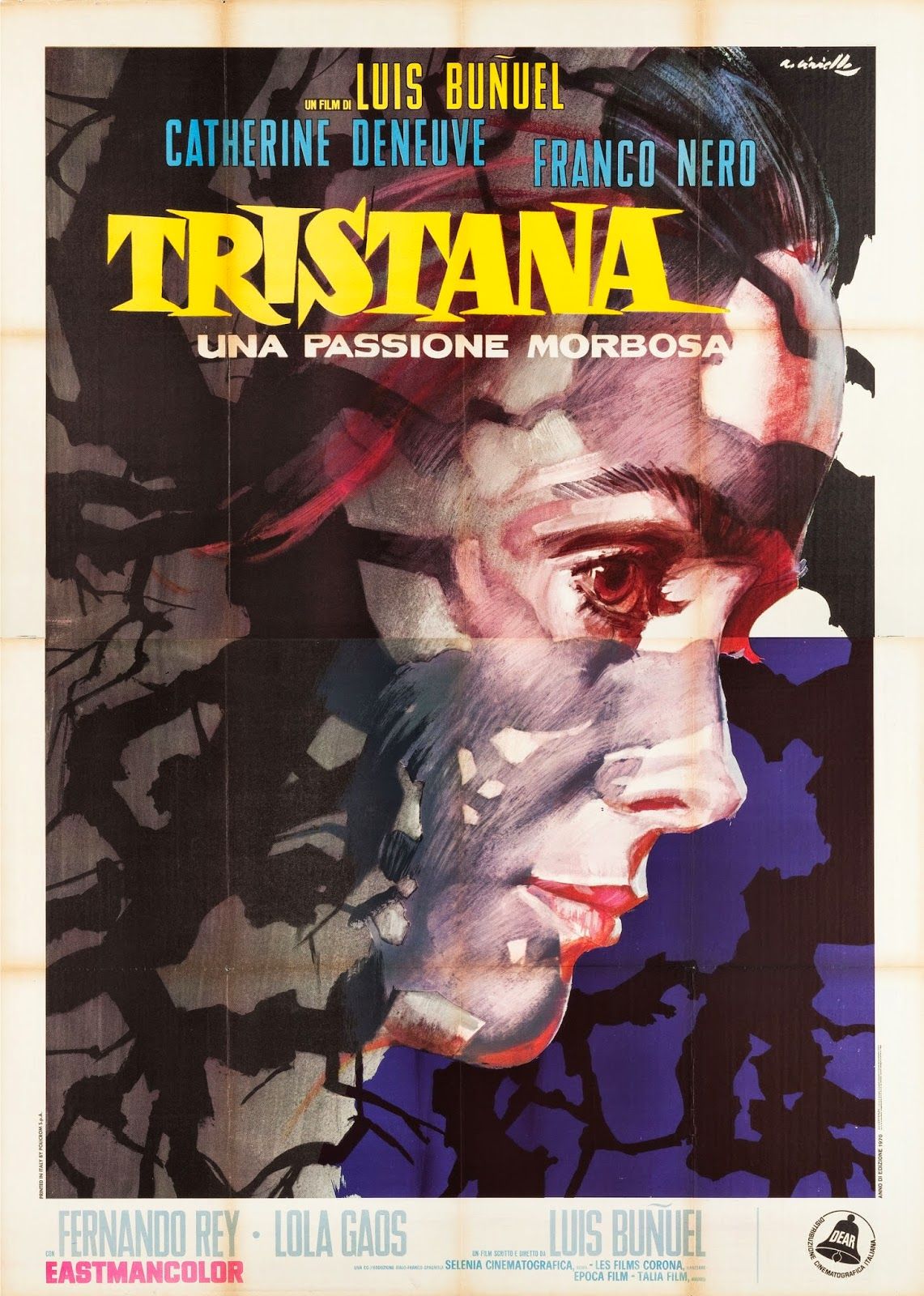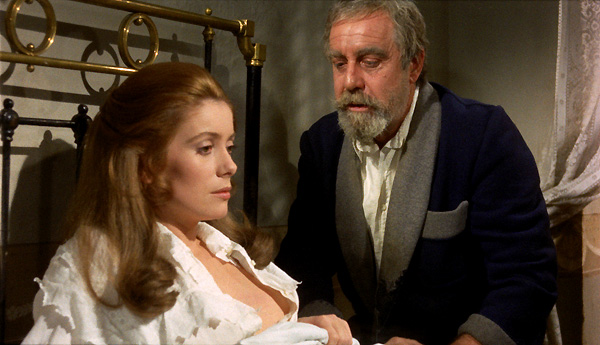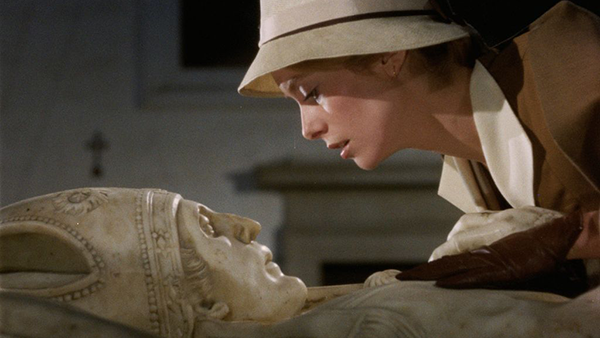by Eric Blume
 Fifty years ago director Luis Bunuel's Tristana, his second collaboration with Catherine Deneuve, opened. It went on to become a 1970 Best Foreign Film Oscar nominee. While it lost the statue to Elio Petri's excellent Investigation of a Citizen Above Suspicion from Italy, it's fascinating to look back at Bunuel's fourth-to-final film and see it still standing strong.
Fifty years ago director Luis Bunuel's Tristana, his second collaboration with Catherine Deneuve, opened. It went on to become a 1970 Best Foreign Film Oscar nominee. While it lost the statue to Elio Petri's excellent Investigation of a Citizen Above Suspicion from Italy, it's fascinating to look back at Bunuel's fourth-to-final film and see it still standing strong.
In many ways, Tristana is one of the more straightforward and accessible Bunuel films, but "straightforward Bunuel" is thankfully still pretty fucked up...
Deneuve plays Tristana, an 18-year-old put into the guardianship of an older family friend (Fernando Rey). The old man seduces his young ward and keeps her mostly trapped in the house, telling her he's both her father and her husband, though he is technically neither. Tristana grows resentful and sneaks out to find a hot young artist (Franco Nero). This all leads to an escape, an amputated leg, and a revenge that play out with the standard Bunuelian irony...

Bunuel uses this story to exploit his common theme of criticizing the bourgeoisie (Rey's character has never held down a job but lives off family money to varying degrees of wealth and leanness), as well as to attack religion and the Catholic Church and its risible hypocrisy. So in that way, it's a typical Bunuel film, but it's also very austere in tone and approach, compared to some of his more absurdist films that came before and after. It's a chamber piece on some level, concerned mainly with the relationship of Deneuve and Rey, who both are excellent at this dysfunctional dance.
What plays with exceptional power fifty years later is Bunuel's critical assay of male chauvinism and sanctimony. The sense of entitlement that Rey's character asserts is appalling, and Bunuel makes the creepy best of the contrast in ages of his leads. And yet while Bunuel cracks down hard on this character, he works beautifully with Rey to find complexities to him as well: this man's fear of death is always imminent, and he's filled with flashes of kindness.
Tristana feels ultimately about ownership. Much is made of the financial and living status of Rey's character, and for him, Tristana is the only thing he's ever owned that he feels is truly his. Tristana wants to own her freedom. This clash gives the film a powerful dramatic center, and Bunuel's macabre sensibility polishes the film to another level.

And of course it's fun to see Deneuve, around 25 at the time, being dubbed into Spanish but still capturing all of Tristana's layers. It's incredible that she's still starring in films fifty years later...we should soon get to see her opposite another French great, Juliette Binoche, in director Hirokazu Kore-eda's The Truth. Looking back at her here, or in her other collaboration with Bunuel, the masterpiece Belle de Jour, you can see how she was born for the camera: glorious cheekbones, keen intellect, effortless sensuality, and her ability to slide from glacial to warm or vice versa within seconds.
Have you seen Tristana? It's available on Amazon for a three dollar rental. What's your favorite Bunuel movie? Your favorite Deneuve performance? Sound off in the comments...